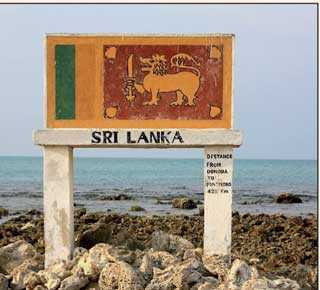Saturday Feb 21, 2026
Saturday Feb 21, 2026
Friday, 8 May 2020 00:00 - - {{hitsCtrl.values.hits}}
President Gotabaya Rajapaksa pardoned Sunil Rathnayake in March. Rathnayake is a convicted war criminal who was on death row. He was convicted of killing eight Tamil civilians, including a five-year-
 |
Sri Lanka, a country where majoritarian supremacy and impunity have long prevailed, is reiterating long-standing trends
|
old. Releasing him from prison is outrageous and should be condemned in the strongest possible terms.
AFP notes that the murdered “were killed as they returned to their bombed homes to salvage what was left of their belongings and their bodies were found buried in a cesspit near an army camp at Mirusuvil on the Jaffna peninsula.”
The depressing reality is that the Rathnayake pardon isn’t anomalous. It’s not particularly unexpected and there had been rumours this pardon was in the works. What was truly surprising is that Rathnayake actually got convicted in the first place.
The pardon has gotten plenty of criticism amongst Sri Lankan civil society and the international community. Paikiasothy Saravanamuttu, Executive Director of the Colombo-based Centre for Policy Alternatives, tells me that the pardon “is a flagrant affront to accountability and decency — a sharp slap in the face and a deep kick in the gut, begging the question of whether accountability in Sri Lanka can be achieved through domestic processes.”
Jeremy Laurence, a spokesperson for the UN Human Rights Office tells me that “pardoning one of the sole convicted perpetrators of atrocities committed during the Sri Lankan conflict further undermines the limited progress the country has made towards ending impunity for mass human rights abuse.”
“It is an affront to victims and yet another example of the failure of Sri Lanka to fulfil its international human rights obligations to provide meaningful accountability for war crimes, crimes against humanity and other gross violations of human rights,” Laurence further notes. All that being said, the move is probably popular amongst ethnic Sinhalese and leading Sinhalese politicians have not criticised the pardon.
When the Coalition Government was in power plenty of international actors (wrongly) believed that President Maithripala Sirisena and Prime Minister Ranil Wickremesinghe were truly serious about healing the wounds of war. But we now know that neither Sirisena nor Wickremesinghe had any intention of doing that.
Promises made to the UN Human Rights Council — in the form of co-sponsored resolutions — were crafted purely for international consumption. This was a disingenuous (and successful) attempt to deceive the international community.
Sirisena and Wickremesinghe never made the case for transitional justice; it wasn’t something that either actually believed in. There was no talk of the transitional justice agenda in Sri Lanka, not really anyway. So, the coalition government created an Office on Missing Persons (OMP).
The Coalition Government eventually established an Office for Reparations. These are ostensibly worthwhile endeavours but the OMP lacks teeth and we don’t know if tracing people will be possible. We don’t know what the lasting significance of the Office of Reparations will be either; regardless, just giving money to Tamil civilians won’t begin to heal the island nation’s wounds of war.
The Rajapaksas are poised to rule mercilessly. And, in contradistinction to politicians like Wickremesinghe, they’ll spend less time hiding their true intentions and more time just making things happen, whatever the cost to ordinary people — especially ethnic and religious minorities, including Tamils, Muslims and Christians.
Besides, this pardon still constitutes early days. There’s a forthcoming Parliamentary Election to consider. The vote has been delayed due to coronavirus concerns and is currently fixed for 20 June. Nevertheless, the trendlines are clear and they almost certainly won’t change prior to the election. In fact, this pardon — as disgusting as it is — is probably a smart move in electoral terms. Moreover, there are justified and growing worries about undemocratic moves in the wake of COVID-19.
Sri Lanka, a country where majoritarian supremacy and impunity have long prevailed, is reiterating long-standing trends. And yet, at the same time, the Rajapaksas are savvier and far more confident than the previous administration was. These are dangerous times.
(Taylor Dibbert is a human rights consultant, writer and journalist. Follow him on Twitter @taylordibbert. [email protected])